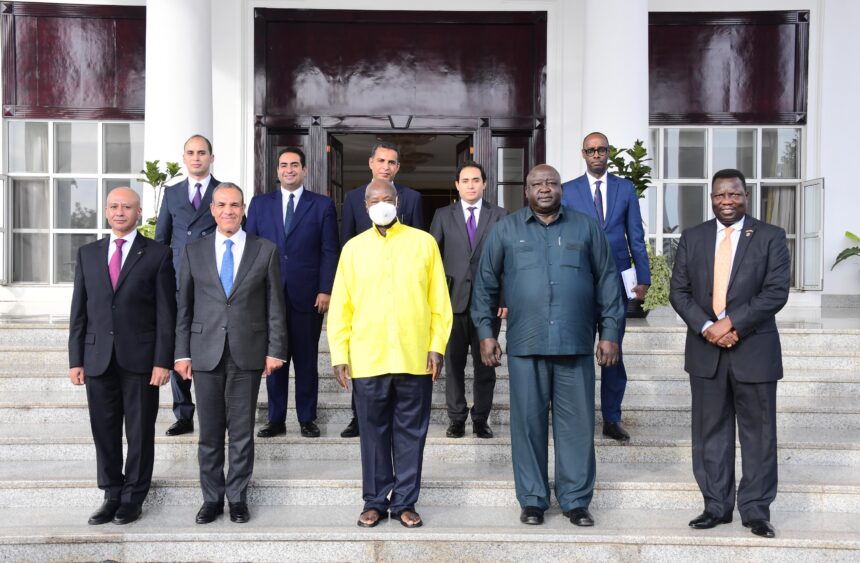President Yoweri Museveni has accepted an invitation from Egyptian President Abdel Fattah El-Sisi to participate in next year’s Nile Basin States Summit in Cairo. The summit will convene 11 Heads of State to address the management of Nile water resources and foster regional collaboration.
President Museveni’s commitment to attend the 2024 Nile Basin Summit reflects a new diplomatic stride towards addressing longstanding challenges in Nile Basin water management.
Hosted in Cairo, the summit will bring together 11 Heads of State from Nile Basin countries, including Egypt, Ethiopia, Sudan, Kenya, Uganda, and the Democratic Republic of Congo. As the highest decision-making body for the Nile Basin Initiative, this summit seeks to tackle key political and environmental issues affecting the region.
During a meeting at State House Entebbe, Museveni expressed his enthusiasm for the summit and underscored the need for unity in addressing the basin’s challenges. “The problem is not water; the problem is just ideology. I don’t know why we don’t agree—that’s why I want a summit,” he remarked. Museveni’s emphasis on a unified approach to resource management marks his vision for achieving stability in the region.
The Egyptian President’s invitation was delivered by Dr. Badr Abdelatty, Egypt’s Minister of Foreign Affairs, Emigration, and Egyptian expatriates, who praised Museveni’s leadership in guiding the Nile Basin Initiative.
“President El-Sisi will be delighted to receive you in Cairo. It’s timely to have this engagement to strengthen our collaboration,” Dr. Badr conveyed, expressing Egypt’s reliance on Museveni’s insight in navigating Nile water issues.
He also outlined Egypt’s approach to managing its water resources, highlighting Egypt’s investment of over $15 billion in water recycling to meet the country’s 40% water deficit.
Museveni also spotlighted the importance of transitioning to sustainable practices across the region, citing the detrimental effects of unsustainable agriculture on the environment. He emphasized the need for socio-economic transformation to reduce reliance on agriculture. “The tropics must undergo social and economic transformation so that the population shifts from agriculture to industry and services,” he said, stressing the importance of preserving critical ecosystems like Mt. Rwenzori and Mt. Elgon, which support rainfall systems across the region.
Recalling historical data from 1964, Museveni raised concerns about the diminished water flow from Uganda to South Sudan, which has dropped from 60 billion cubic meters to 40 billion due to decreasing rainfall. “If you care about the Nile, make sure the tropics modernize. Society shouldn’t rely on primitive agriculture but rather on services and industry,” he urged. He also underscored the necessity of preserving local water sources, which contribute 40% of Uganda’s rainfall.

Dr. Abdelatty conveyed that Egypt has also taken steps to mitigate regional water challenges, emphasizing its plan to establish a joint ministerial committee with Uganda to expand bilateral cooperation in areas like infrastructure, food processing, and pharmaceuticals. Egypt’s Cabinet has also approved $600 million in export and investment guarantees for Nile Basin countries, with a strong focus on Uganda and other Equatorial Nile Basin countries, to stimulate investment.
With his acceptance of Egypt’s invitation, Museveni is positioned to play a significant role in fostering dialogue among the Nile Basin countries, promoting sustainable practices, and advocating for economic transformation across the region. The upcoming Nile Basin States Summit in Cairo marks a critical step in reinforcing cooperation among these nations, with a shared goal of preserving and responsibly managing the Nile for future generations.

